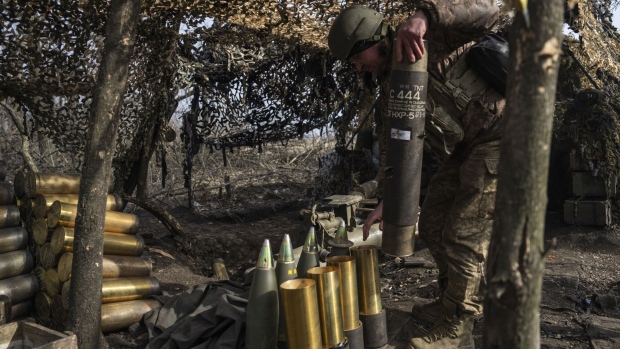Mar 12, 2024
Lukoil’s Russian Refinery Unit on Fire Following Drone Attack
, Bloomberg News

(Bloomberg) -- Ukrainian drones attacked Russian oil refineries overnight, threatening a recovery in the nation’s fuel-processing capacity just as seasonal demand picks up.
Lukoil PJSC’s Norsi plant in the Nizhny Novgorod region halted a unit after “an incident,” its press service said on Tuesday. The statement came shortly after the region’s governor Gleb Nikitin spoke in his Telegram account about a drone attack on the Norsi facility that resulted in a blaze. A strike near Surguteftegas PJSC’s Kirishi refinery didn’t cause any damage.
The strike on the Norsi refinery, which supplies fuel to both domestic and overseas markets, is the most destructive attack by Ukrainian drones on the Russian downstream oil sector in over a month. Kyiv has been targeting key Russian civilian and military infrastructure with drones following the Kremlin’s invasion in Ukraine, as the strategy can cause significant damage at relatively low costs.
Overall, Russian military forces intercepted 25 Ukrainian drones attacking seven regions, including Moscow, on Tuesday morning, the nation’s Defense Ministry said in its Telegram account. Kyiv is trying to hamper Russia’s oil-product exports and its ability to send supplies to the front lines.
About 1,000 km (over 620 miles) away from Nizhny Novgorod, another drone was downed in the town of Kirishi, home to the major export refinery run by Surguteftegas, according to regional governor Alexander Drozdenko. “There are no casualties or damages,” Drozdenko said in his Telegram account.
Russian refineries had largely restored their oil-processing capacity by the end of February, following damage from previous strikes. To support the domestic market, Russia imposed a temporary ban on gasoline exports from March 1 and ordered refiners to coordinate their seasonal maintenance plans to ensure steady supplies.
Read More: Russia Recovers From Ukraine Drone Strikes as Oil Refining Rises
Any disruption to oil-processing operations from new drone strikes may redirect fuel flows between Russian regions and cause potential logistical bottlenecks.
The Norsi refinery, which has the capacity to process some 340,000 barrels a day, did not disclose the scale of the damage after the morning attack.
“The company is making every effort to restore normal operations as soon as possible,” it said, adding that it plans to coordinate with other market players to meet domestic fuel demand.
Norsi curbed its operations earlier this year after an internal incident, which led to lower gasoline exports from Russia. Its oil-processing rates returned to normal levels in February.
The Kirishi refinery, with a capacity of some 350,000 barrels a day, mostly focuses on oil-product exports. That means any disruptions would affect Russia’s seaborne flows of petroleum products, including diesel.
Read More: Russia Sees Lower Diesel Export by Sea in March After Drone Hits
(Updates throughout with details of the attack, background)
©2024 Bloomberg L.P.





